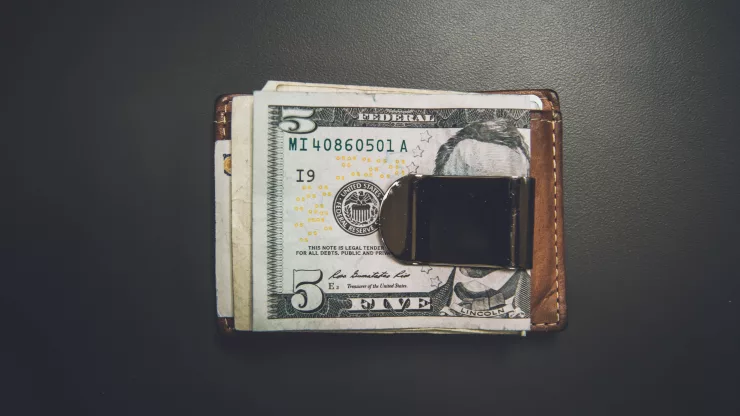Student debt is a growing problem in the United States, with many young people coming out of college with significant amounts of debt to their name.
This debt can be crushing, making it difficult to make ends meet and achieve financial goals.
However, there are strategies for paying off student loans that can help alleviate the burden.
In this article, we’ll explore some of the ways you can tackle your student debt and work towards a debt-free future.
Jump to Section
Introduction
Why Student Debt is a Problem
Student debt has become a major issue in the United States, with the total amount of outstanding student debt surpassing $1.7 trillion in 2021. This level of debt can be overwhelming, making it difficult for recent graduates to start their careers and achieve financial stability. The burden of student debt can also have a significant impact on mental health and overall well-being.
The Importance of Paying Off Student Loans
Paying off student loans is a crucial step towards achieving financial stability.
By reducing or eliminating your student loan debt, you can free up money for other expenses, save for retirement, and work towards achieving your long-term financial goals.
Additionally, paying off your student loans can improve your credit score, making it easier to qualify for loans and credit cards in the future.
Understanding Your Student Loans
Types of Student Loans
There are two main types of student loans: federal and private. Federal student loans are offered by the government and typically have lower interest rates and more flexible repayment options.
Private student loans are offered by banks and other financial institutions and may have higher interest rates and fewer repayment options.
How Interest Rates Work
Interest is the cost of borrowing money, and it is expressed as a percentage of the total loan amount.
The higher your interest rate, the more you’ll pay in interest over the life of your loan.
Understanding how interest rates work can help you make informed decisions about your student loans and develop a repayment plan that works for you.
Creating a Repayment Plan
Calculating Your Loan Payments
Calculating your loan payments is an important step in developing a repayment plan. You can use online calculators or consult with your loan servicer to determine how much you’ll need to pay each month to pay off your loan on time.
Choosing the Right Repayment Plan for You
There are several repayment plans available for federal student loans, including standard, graduated, income-driven, and extended repayment plans. Each plan has its own pros and cons, and it’s important to choose the plan that works best for your financial situation.
Relative Table:
| Repayment Plan | Monthly Payment | Total Paid | Payoff Time |
|---|---|---|---|
| Standard | $350 | $42,000 | 10 years |
| Graduated | $250-$500 | $45,000 | 10-30 years |
| Income-Driven | 10-20% of discretionary income | $36,000-$54,000 | 20-25 years |
| Extended | $200-$300 | $50,000 | 25 years |
Strategies for Paying Off Student Loans
Prioritizing Your Loans
One strategy for paying off student loans is to prioritize your loans based on their interest rates. By paying off loans with higher interest rates first, you can reduce the amount of interest you’ll pay over the life of your loans.
Making Extra Payments
Making extra payments towards your student loans can help you pay them off faster and save money on interest. Even small extra payments can make a big difference over time.
Refinancing Your Loans
Refinancing your student loans can be a good option if you have good credit and can qualify for a lower interest rate. By refinancing, you can reduce your monthly payments and save money on interest over the life of your loan.
Finding Additional Sources of Income
Side Hustles to Pay Off Debt
Taking on a side hustle can be a great way to earn extra money to put towards your student loans. Consider freelancing, tutoring, or driving for a ride-sharing service to earn extra cash.
Maximizing Your Current Income
Maximizing your current income can also help you pay off your student loans faster. Consider asking for a raise or taking on additional responsibilities at work to earn more money.
Dealing with Unexpected Financial Situations
Job Loss or Income Reduction
If you experience a job loss or income reduction, it’s important to take action to manage your student loan debt. Consider applying for an income-driven repayment plan or seeking out temporary employment to help make ends meet.
Medical Emergencies
Medical emergencies can be costly, and they can have a significant impact on your finances. If you’re facing unexpected medical expenses, consider negotiating with your healthcare provider or seeking out financial assistance programs to help cover the costs.
Staying Motivated Throughout the Repayment Process
Celebrating Small Wins
Paying off student loans can be a long and challenging process, but it’s important to celebrate your progress along the way. Set small goals and celebrate when you reach them to help stay motivated.
The Power of Visualizations
Visualizing your debt-free future can also be a powerful motivator. Consider creating a vision board or other visual reminders of your goals to help keep you focused and motivated.
Conclusion
Final Thoughts on Crushing Student Debt
Student debt can be a daunting challenge, but by understanding your loans, creating a repayment plan, and staying motivated, you can work towards a debt-free future.
Take Action Today to Achieve a Debt-Free Future
If you’re struggling with student debt, don’t wait to take action. Use the strategies outlined in this article to start tackling your debt today and work towards a brighter financial future.
FAQ
How can I find out how much I owe in student loans?
You can find out how much you owe in student loans by logging into the National Student Loan Data System (NSLDS) using your FSA ID.
Can I refinance my federal student loans?
Yes, you can refinance your federal student loans through a private lender. However, it’s important to carefully consider the pros and cons before refinancing, as you may lose some of the benefits associated with federal loans.
What should I do if I can’t afford my monthly loan payments?
If you can’t afford your monthly loan payments, consider applying for an income-driven repayment plan or seeking out other options for temporary relief, such as deferment or forbearance.

With a deep passion for personal development, Ben has dedicated his career to inspiring and guiding others on their journey towards self-improvement.
His love for learning and sharing knowledge about personal growth strategies, mindfulness, and goal-setting principles has led him to create My Virtual Life Coach.
Contact Ben at [email protected] for assistance.




